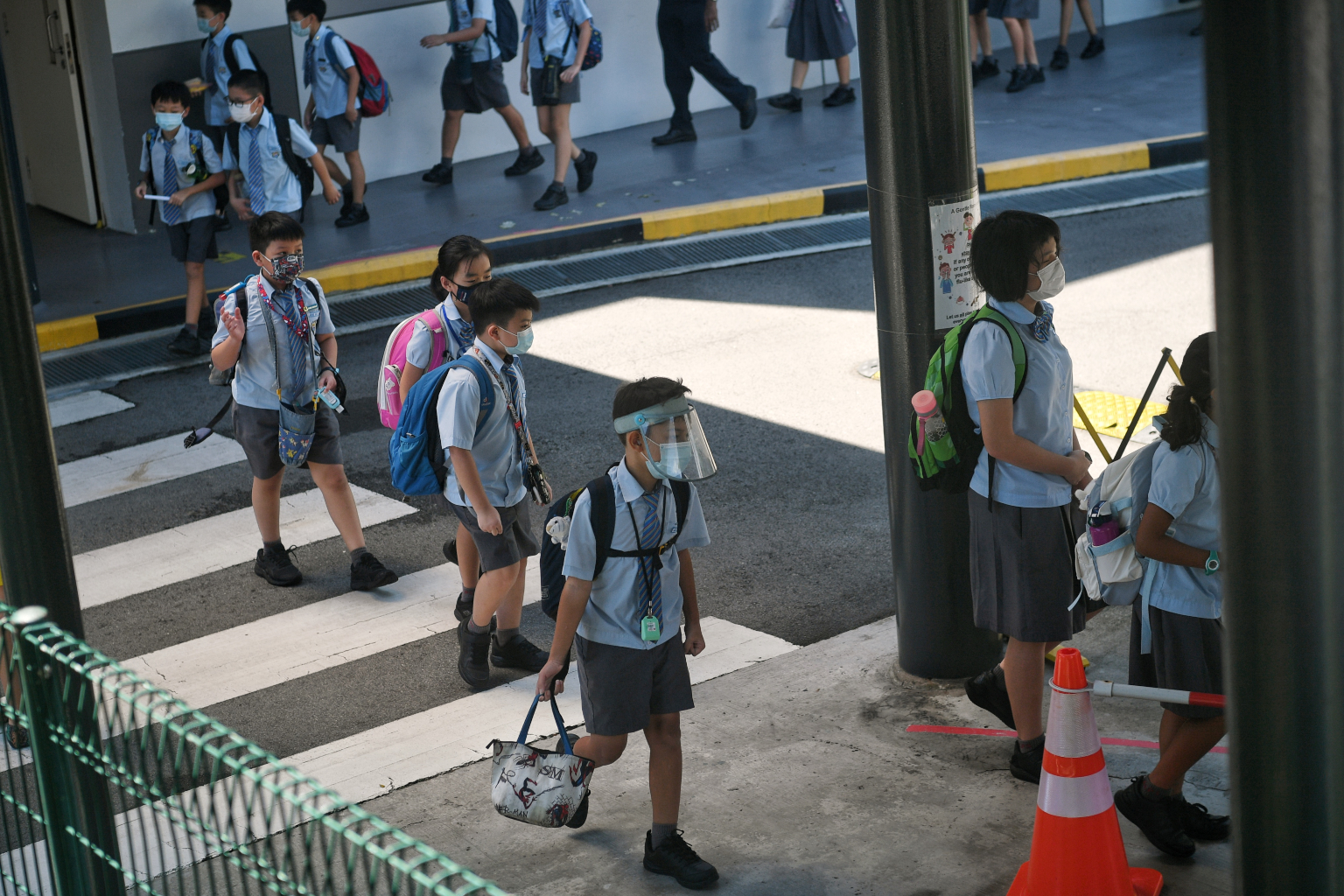No plans for now to impose vaccination-differentiated curbs on kids aged 12 and below: MOH
Sign up now: Get ST's newsletters delivered to your inbox

Children from five to 11 years old will be able to receive the Pfizer-BioNTech/Comirnaty Covid-19 vaccine.
ST PHOTO: KUA CHEE SIONG
SINGAPORE - There are currently no plans to introduce vaccination-differentiated safe management measures for children aged 12 years and below, the Ministry of Health (MOH) said on Tuesday (Dec 14).
“The focus now is to ensure our children are well protected by vaccination,” said the ministry in a statement.
Children from five to 11 years old will be able to receive the Pfizer-BioNTech/Comirnaty Covid-19 vaccine, starting with those in Primary 3 to 5 from the end of December, and the younger ones thereafter in early 2022.
The vaccination exercise will involve more than 300,000 children.
In response to questions from reporters about whether children will be subjected to vaccination-differentiated rules, like only allowing those who are fully vaccinated to enter shopping malls, Health Minister Ong Ye Kung said on Tuesday that more details will be released soon.
“We are working through all this with the Ministry of Education. So don’t jump to conclusions too soon. Once we have charted out the whole plan, together with MOE, we will announce the arrangements and the policies,” he said at a press conference held by the multi-ministry task force tackling Covid-19.
Senior Minister of State for Health Janil Puthucheary, acknowledging parents’ concerns about the safety of the Covid-19 vaccines, cited evidence showing that risks of adverse reactions are low, as he urged families to vaccinate their young children.
Trials of the Pfizer vaccine conducted in the United States found that children aged five to 11 had fewer side effects compared with those aged between 16 and 25, he said.
He noted that there were also no cases of anaphylaxis, or the rapid onset of severe allergic reactions, as well as myocarditis (heart inflammation) or pericarditis (inflammation around the heart), in the US vaccine trials among children aged five to 11.
The same study also showed that the vaccine is 90.7 per cent effective in preventing symptomatic forms of the disease in children in the age group.
Dr Janil said: “We know that parents are concerned. They want the best thing for their children. They want to be able to protect their children and create opportunities for their children. This is what we want as well."
“And our assessment is the best way to do that is to vaccinate our children against Covid-19.”
Dr Janil said that children may experience some side effects such as muscle pain, tiredness, fever or chills, as a result of the Covid-19 vaccine.
"These are all signs that the body is reacting to the vaccine and as a result building up protection and immunity. The side effects will go away in a few days," he added.
While Covid-19 symptoms tend to be milder in children compared with adults, Dr Janil said: "There is still a risk of children developing severe disease, with some cases requiring hospitalisation, oxygen supplementation and intensive care unit admission."
He said there have been one or two cases of multi-system inflammatory syndrome in children (MIS-C) every week in Singapore since mid-October, with some of these children requiring care in the intensive care unit.
MIS-C, which affects a small minority of children afflicted with Covid-19, is a condition where different body parts, including the heart, lungs, kidney, brain and eyes, can become inflamed.
Dr Janil said vaccination "will help protect our children from getting the Covid-19 infection and keep them from getting seriously sick even if they do get Covid-19, so reducing the risk of severe complications such as MIS-C".
It will also protect their family members, who are at risk as children spend much time in schools and pre-schools, where infections can spread as they interact with each other, he added.
Less transmission of Covid-19 among school-going children also means "there's less likely to be a disruption to their education and their opportunity and ability to carry out co-curricular activities, which is what we want for them", said Dr Janil.
The Pfizer vaccine is the first Covid-19 vaccine approved by Singapore for use for children aged five to 11, following a recommendation by the expert committee on Covid-19 vaccination which the multi-ministry task force has accepted.
The committee had said the benefits of the vaccine outweigh the risks posed to young children, especially given the ongoing community transmission and emergence of the Omicron variant.
The children will be given smaller doses - one-third of that used for those 12 and above - and the jabs will be spaced at least 21 days apart.


